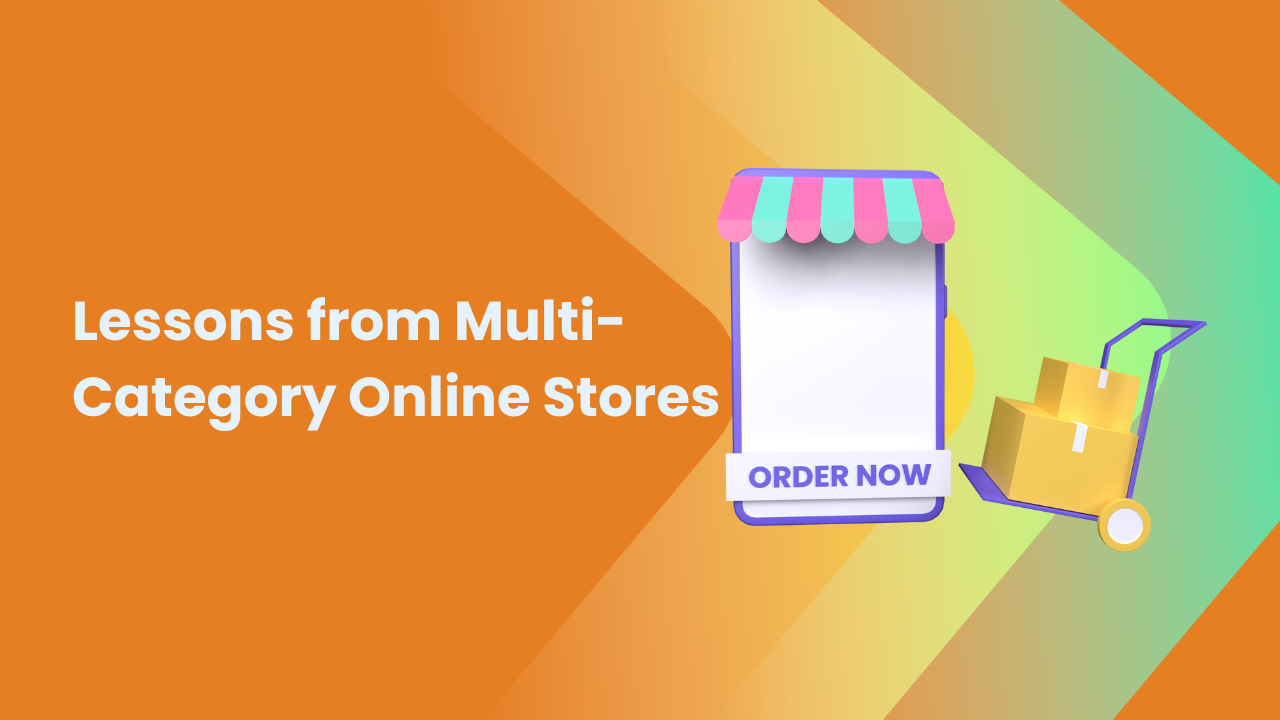Share this Article
As Nepal’s e-commerce ecosystem flourishes in 2025, choosing the ideal e-commerce platform is a fundamental decision that can significantly impact your business’s online performance and growth trajectory. The rapid digital transformation, combined with the growing expectations of Nepali consumers, necessitates a thoughtful and strategic approach to platform selection. With a myriad of choices available—from international platforms like Shopify to homegrown solutions tailored for the Nepali market—businesses must consider various factors before making their decision. This guide explores the critical considerations for selecting the right e-commerce platform for your Nepali business.
1. Clarify Your Business Requirements and Objectives
Before delving into platform features, it’s essential to establish a clear understanding of your business needs, goals, and future vision. This foundational step ensures that the platform aligns with both your immediate requirements and long-term growth strategies.
- Product Offering and Complexity: Identify the type of products you are selling—are they tangible products like apparel, electronics, or local Nepali handicrafts? Or do you specialize in digital goods or services? Some platforms cater better to specific industries, with integrated features suited for product-based businesses, while others excel in supporting services or digital goods.
- Business Size and Growth Plans: Consider both the current scale and future scalability of your business. Small businesses may prioritize ease of use and affordability, whereas growing enterprises will need advanced features such as automated inventory management, robust analytics, and a seamless multichannel experience.
- Sales Channels and Expansion: As your business expands, you may want to sell across multiple channels—whether through your website, social media platforms, mobile apps, or marketplaces such as Daraz. Choose a platform that supports an omnichannel approach, providing integration with these various channels.
2. Evaluate User-Friendliness and Design Flexibility
A seamless user experience (UX) is paramount in today’s fast-paced digital world, not only for customers but also for the ease of managing your e-commerce store.
- Intuitive Interface: Platforms with drag-and-drop functionality, like Shopify or Dukaan, allow users with minimal technical expertise to set up and manage stores. Ensure the platform is intuitive and supports easy navigation and configuration, even if you do not have a dedicated IT team.
- Customization and Branding: Choose a platform that offers design flexibility to reflect your brand’s identity. Whether you are aiming for a traditional Nepali aesthetic or a modern, minimalist look, your platform should provide customizable themes or templates that can be tailored to suit your brand.
- Mobile Optimization: Considering the growing mobile penetration in Nepal, ensure that the platform provides a fully responsive design, offering an optimized experience for users browsing or shopping via smartphones and tablets.
3. Seamless Payment Gateway Integration
Effective payment processing is at the heart of any successful e-commerce operation, especially in a market like Nepal where diverse payment options are expected.
- Support for Local Payment Methods: Platforms should integrate with widely used local payment methods such as eSewa, Khalti, IME Pay, and cash-on-delivery (COD), which are integral to the Nepali e-commerce ecosystem. Ensure that the platform facilitates a smooth, secure transaction experience tailored to local payment preferences.
- Global Payment Solutions: If your business has an international customer base, the platform should also integrate with global payment gateways like PayPal, Stripe, or credit card processing systems.
- Payment Security: With growing concerns around online fraud, it’s vital to choose a platform that ensures secure payment processing, including SSL certification and compliance with international security standards.
4. Scalability and Customization Flexibility
As your business grows, so will your technological requirements. A scalable platform will ensure that you can expand without facing major limitations.
- Feature Customization: Choose a platform that offers customization options, enabling you to add new features, integrate third-party tools, or build custom functionalities as your business evolves. Whether it’s adding multilingual support (Nepali and English), integrating AI-driven tools, or implementing advanced analytics, your platform should allow you to tailor it to your specific needs.
- Third-Party Integration: Many Nepali businesses rely on third-party tools such as accounting software (e.g., Tally), customer relationship management (CRM) systems, or email marketing tools. Select a platform that seamlessly integrates with these tools, streamlining your workflow and operations.
- Growth-Focused Architecture: Opt for a platform with the capacity to handle increasing traffic, orders, and transactions as your business scales. You should not face performance issues as your customer base grows or your sales volume increases.
5. Robust SEO and Marketing Capabilities
For any e-commerce business, driving traffic to your site and converting visitors into customers is crucial. A platform with strong SEO and marketing tools can significantly improve your visibility and sales.
- Built-in SEO Tools: Look for a platform that offers SEO features such as customizable meta tags, URL structure optimization, and automatic generation of XML sitemaps. This will help your store rank higher on search engines like Google, making it more discoverable to Nepali customers searching for your products.
- Email Marketing and Social Media: Your platform should come equipped with marketing tools such as email newsletters, automated follow-up emails, and integration with popular social media platforms (Facebook, Instagram, Google Ads). This functionality will help you engage with your customer base and promote products more effectively.
- Advanced Analytics: Platforms with built-in analytics allow you to track website performance, customer behavior, and sales trends. These insights are invaluable for refining your marketing strategies and making data-driven decisions.
6. Comprehensive Customer Support and Community
Good customer support is essential for both you and your customers. Consider platforms that provide accessible support channels and a strong user community.
- 24/7 Support: Choose a platform that offers around-the-clock support via live chat, email, or phone. For Nepali businesses, it’s beneficial if the support team is familiar with the local market or offers assistance in Nepali.
- Knowledge Base and Self-Help Resources: A well-documented knowledge base with tutorials, guides, and FAQs can be incredibly helpful for troubleshooting issues on your own.
- Active Community: A platform with a thriving user community or online forums can provide valuable insights, tips, and solutions from other entrepreneurs facing similar challenges.
7. Cost-Effectiveness and Transparent Pricing
The cost of an e-commerce platform can vary widely, depending on its features and scale. It’s important to understand not only the initial investment but also the ongoing costs.
- Pricing Structure: Some platforms charge a monthly subscription, while others take a percentage of each sale or offer a freemium model. Ensure the pricing structure aligns with your budget, and look for any hidden fees such as transaction or integration fees.
- Trial Periods: Take advantage of free trials or demo versions offered by platforms to test out the features and assess their suitability for your business.
- Long-Term Costs: Consider potential long-term costs, including fees for custom features, premium themes, third-party apps, and additional storage. Evaluate how these may scale with your business growth.
8. Legal Compliance and Data Security
As e-commerce continues to grow globally, businesses must adhere to various legal and regulatory standards, including those related to data privacy and consumer protection.
- Compliance with Local Laws: Ensure that the platform complies with Nepal's consumer protection and data privacy laws. This is especially important when dealing with customer data, payment information, and taxes.
- GDPR and Data Protection: If you plan to expand internationally, ensure that your platform is also compliant with global standards such as the General Data Protection Regulation (GDPR) for handling customer data.
Conclusion
Selecting the right e-commerce platform for your Nepali business in 2025 requires a careful balance of functional features, cost-effectiveness, scalability, and local market needs. By assessing your business’s specific requirements, growth plans, and customer expectations, you can choose a platform that will not only meet your current needs but also evolve with your business. Whether you are a small shop owner in Kathmandu or an expanding e-commerce enterprise, the right platform will enable you to offer a seamless, secure, and scalable shopping experience, setting the foundation for long-term success in Nepal's dynamic digital marketplace.
Categories:
E-commerce Tips & Tutorials
Tags:
NepalBusiness
,
StartupNepal
,
Ecommerce2025
,
ChooseRightPlatform







